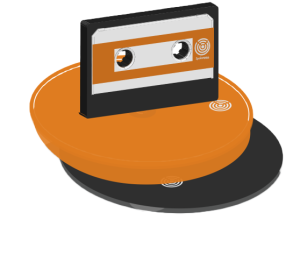When do you start data management planning for curation?
Data curation management should be integrated from the very beginning of a project, during the planning stages. It should be a core part of the methodology of your research project. Reviewing your data management requirements during the planning stages of your project also allows you to reach out for assistance and ensure your project team has the necessary skills before you experience any problems or roadblocks. Data humanists tend to focus on data curation management once a research project is finished, either when it’s time to analyze the data or when it’s time to decide where the data should be stored. Don’t do this.
During the planning stages, consult with research management data support services, which may include librarians and advanced research computing experts. Looking at existing peer digital humanities research projects in the same discipline or using similar methodologies also ensures that you build on existing community practices for creating, formatting, and publishing your data. It is also very important to consult with your ethics board and/or copyright office during the planning stages, as their expertise may also be required. Collaborating with a librarian ensures you have the necessary expertise in data management best practices and repository options. Collaborating with experts in advanced research computing, either through your institution or a national organization, ensures you have the necessary technical skills and infrastructure you require for your project.
Research conducted by and with First Nations, Métis and Inuit communities, collectives and organizations, may require you to go beyond the requirements of the Tri-Council TCPS2, the Tri-Council RDM policy, and your institutional ethics board. Working with respect for data sovereignty means that First Nations, Métis and Inuit Nations, communities, collectives, or organizations should guide and ultimately determine how their data are collected, used, and preserved, and make sure that they will have the right to repatriate their data. Planning your data curation management at the onset of the project will better integrate the First Nations principles of OCAP®, Métis principles of OCAS, and/or the National Inuit Strategy on Research, or the broader, global CARE principles for Indigenous Data Governance, and other relevant non-oppressive approaches to your data collection, protection, sharing, and use.
Be aware of First Nations, Métis and Inuit communities’ data curation capacity needs and, in consultation with your partners, consider ways of supporting such capacity development in your proposed work from the outset, e.g., funding applications, your own institution’s data infrastructure planning, etc.
Thorough planning also allows for working out what your final outputs across media platforms may be: traditional publications (monograph, article), data sharing, knowledge mobilization through non-traditional digital formats, or data papers.

The SpokenWeb Partnership is comprised of 13 institutions across Canada and the United States. It develops collaborative approaches to literary historical study, digital development, and critical and pedagogical engagement with diverse collections of literary sound recordings from Canada and beyond. The SpokenWeb is a significant producer of humanities data, derived from scholarly and creative work with audio recordings. This includes:
- Analogue recordings from an historical period ranging from the 1950s to the 1990s;
- Born digital recordings that document oral history interviews and events taking place in the present day;
- Many types of files produced at each partnership site: audio; administration forms and documentation; spreadsheets; software and web code; and
- Images files and all derivatives from activities such as research creation, pedagogical tools, digital storytelling, and scholarly writing, etc.
From the beginning, the SpokenWeb partnership has understood data curation to be a core part of the methodology of its research project. In other words, the listening practices that are the basis of forming community around aural experience in the partnership are paralleled by the enabling of the research community through data sharing.
Arguably, the key to successful data curation and sharing across the SpokenWeb partnership has been a requirement that every partner institution bring on a librarian co-applicant. This requirement for disciplinary researchers to pair up with stewards of library and archives collections and information systems, provides the necessary expertise in data management best practices as established by a national network of RDM practitioners, across the partnership.

